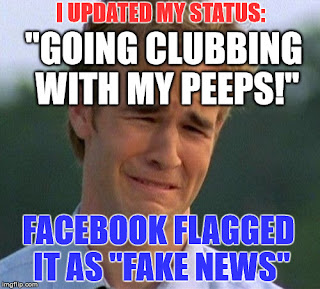It’s been a while since I’ve written a blog and I wasn’t planning to write one for a while but sometimes you just know when it’s time to get back in the saddle. My last blog was about my daughter not doing well in school. Since then, she graduated from high school and started college with a scholarship and is doing very well—I’m surprised, too. She’s happy, she’s getting out the house, she’s got a new perspective on life and more importantly, she’s being honest about herself and working on her shit. It’s been pretty awesome to watch.
But man, these past few years have been a struggle for me. And it’s not just her constant anger and sadness that were taking a toll on me. I had become somewhat of a constant caretaker to my sick husband who has been in and out of the hospital so many times these past several years I lost track. Holidays became a blur and days were filled with that constant dread of, ‘is today going to be a good day or another bad day?’ I think I finally got to the end of my rope when I came home from work in April to find him unresponsive. I couldn’t find his pulse, his heart was racing so high you could see his shirt flutter on his chest and he couldn’t wake up. Luckily, my daughter had stayed home from school that day (again) and called me and asked me to come home and check on him because he was still asleep at noon. It turned out to be a staph infection—not sure how that happened but the doctor did give me a lecture on keeping my house clean. You know, because people never get staph infections when they’ve been in the hospital repeatedly, but whatever. Add it to the list of things that made me angry that week.
I’m not really sure how my husband survived that episode, but once again, we left the hospital and went home and tried to regroup. He had open heart surgery at the end of May to repair his leaky valve and small hole he had in heart and seemed to be on the mend but then his gallbladder went south and we spent a good portion of the summer in the hospital. He couldn’t drive and I think that’s when I finally realized, I’ve gotta get some help.
 |
We finally got to redeem what was left of summer
break with a trip to the beach.
|
And to top it all off, I had grown to really hate my job at the TV station. I loved the people I worked with but the work itself was miserable. My freelance work helped me balance that part of my life for a while, but it just finally got to be too much. My job was to create content for our website and to create content for our social media. I had one other co-worker who did the same job as me and we weren’t scheduled to work weekends, but we were routinely expected to also fill that web content void on the weekend, so it was hard to tune out work or live a normal work routine. And if you’ve ever spent much time on a news channel’s social media page, you know what I was up against. The comments, which we had to monitor, were horrible. “Fake news! Fake news! Fake news!” It didn’t matter what I wrote and reported, there were always the usual suspects that were constantly lurking in the shadows just waiting for me to post a news story about the president’s latest twitter rant or gay marriage or claims that the Georgia race for governor was a complete cluster when it came to voter suppression—these are not my personal stories, these are what us journalists call actual news that people need to know about. And forget facts, those people don’t care if you put logic and facts in a news story, they will stay say it’s fake news and I should lose my job.
I’d have people call at 5 a.m. to ask me why I was reporting lies and how I should lose my job. And these same people don’t just want to hurt your feelings, many of them want to physically hurt you. Walking to and from my car in our gated parking lot became more of a race every day. I was scared. And then when I had to spend the last hurricane sleeping at the station and working 12 hours shifts while my family was safely stashed away on the other side of the state, I realized something very important, I’ll always have the heart of ‘girl reporter’ and I love my free speech, but I’m not going to die for journalism—at least not while my family is so completely dependent on me.
So, in June, I quit that job and took a corporate marketing gig and made the decision to take a break from freelance and try to find myself again. It’s easy to lose yourself when your entire life is all about taking care of everyone else but yourself. It’s easy to set your brain on autopilot and just get up every day, do your job, take care of everything, go to bed and do it all over again. And again, and again.
I decided that after I felt like I had taken that break, I would go back to writing and working on some personal projects I’ve had to put on hold for the past few years since it’s hard to do anything personal when you work 60 hours a week typing away on your keyboard for other people.
Yesterday, I talked to my dad on the phone to catch up and check in and he asked if I was working on my personal writing projects yet. I told him no, and said, I know I’m going to have to dig deep to work on it and I’m not ready to do that yet. As an artist, he understood what I meant, and I was glad to not have to explain it any more than that. It’s not just about digging in and pulling up the anger and sadness that fuels the work, it’s about being in a place where you can unplug from the world long enough to dig deep and find the words you want to say. And plus, part of being able to get up, work, cook, clean, repeat is being able to turn off those thoughts and feelings. At least for me it is.
And quite frankly, I’m not sure if I really am ready to dig deep because part of me is worried it’s going to open up all this sadness and anger I’ve been holding in these past few years because there hasn’t been space in my life to allow those feelings to sink in.
About a week ago, I found out one of my favorite teachers from high school passed away. He and his family had lived across the street from us when I was little, so I had a special connection to him aside from school. I was telling my husband about him and the tears came to my eyes. I realized I instantly shut that down. I honestly don’t remember the last time I just cried or let myself just let go and feel the pain and sadness—or the happiness.
But as my mom says, the feeling is the healing. If you don’t let yourself truly feel those feelings, it’s damn hard to heal that crap. So, I guess it’s time to pick up the old laptop and start healing the way I know how to heal by clicking away at this keyboard over and over until I get those words on the page and can move on to something else. I mean, life moves fast, and if I’m not careful, I’ll be old and wonder what ever happened to that project I wanted to finish. But more importantly, I’ll look in the mirror and wonder what the hell ever happened to that girl reporter who was ready to set the world on fire with her words.










